Check out some books by your tutor Fiona Veitch Smith … (click on the book covers to find out more)
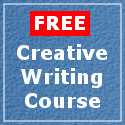 Hello everyone, welcome to the first session of our free online creative writing course. Over the next eight sessions we will be looking at different aspects of creative writing and trying our hand at various forms. I’d strongly encourage you to have a go at the exercises along the way, and please feel free to leave comments or ask questions at the end. If you have arrived on this page without first reading the home page and frequently asked questions page (on tab above) please go back and do so now. If you have read them, enjoy the course!
Hello everyone, welcome to the first session of our free online creative writing course. Over the next eight sessions we will be looking at different aspects of creative writing and trying our hand at various forms. I’d strongly encourage you to have a go at the exercises along the way, and please feel free to leave comments or ask questions at the end. If you have arrived on this page without first reading the home page and frequently asked questions page (on tab above) please go back and do so now. If you have read them, enjoy the course!
Creativity and Art
What is creativity? The Collins dictionary defines it as ‘the ability to cause something to exist’. Without getting into too much of an existential discussion, I would say that with every thought that is expressed, something has been created. It was Descartes who said: ‘I think, therefore I am’; well I would add, ‘I think, therefore I create’ (do you feel a God complex coming on?). But how do we express our thoughts? Sometimes we do it verbally, other times by body language and still again through what is loosely termed ‘art’.
Art takes place when a thought is expressed and fixed in a way that other people may experience it on an aesthetic level – through music, writing, painting, sculpture, choreography and so on. Many artists say that their best work takes place when they ‘by-pass’ the thought and simply express the feeling. This may be true, but for writers, who use a verbal medium, a feeling must first be converted into a thought before it can be put into words. Don’t over analyse the thought before you express it, as this way you can ‘channel’ the purest interpretation of the feeling, but some cognitive process needs to take place. Some writers prefer to mull over a thought and give it form before they put pen to paper – I’m one of them – but it’s good practice to try and switch off the ‘editor’ at least for the first draft. First response trigger exercises are useful in this regard and can release some unexpected words and images.
Exercise 1:
Write down your first response to these words or phrases:
- Blue ball
- And that’s when the sadness came
- Coffee
The first task of a good writer is to convert feelings into thoughts and then into words. This is the raw material that can then be converted into something more permanent. Some writers refuse to toy with their first drafts, believing their creativity will be diluted; I disagree. Allowing your critical mind to improve a piece of writing is where the craftsman meets the artist. Something produced only by the former will lack soul and something by the latter will lack form. Good writing is a combination of art and craft.
For public consumption
Art, of course, is highly subjective and one woman’s masterpiece is another woman’s unmade bed. We all have the ability to create, but whether or not our creation is ‘art’ must be left to the eye or ear of the beholder.
In this session we will look at how you can craft those creative thoughts into creative writing to share with other people. And that’s what sets ‘public’ writing apart from ‘private’ scribblings – there’s a perceived readership in mind. When I ramble on in my journal, I am the only one who will read it (hopefully!) so my only concern is getting my thoughts down on paper. The moment I want someone else to read it I begin to consider ways to improve the presentation and craft it into something more aesthetically pleasing. I consider which words may sound more colourful, whether or not my sentence structure is grammatically correct, whether I’m using evocative imagery, and so on.
Story, feeling or image?
What is it about those creative thoughts that you think might be of interest to other people? Do they speak of an eternal truth or a common experience? Do they make you laugh or cry? Do they suggest a story that will entertain or a poem that captures a moment that must be shared?
Exercise 2: In 50 words or less write down why you want to write then list three creative thoughts that you’ve had lately (each 10 words or less). These may be an image, a musing, a ‘truth’, a story, or so on. If you haven’t had any, take yourself for a walk and look around; what grabs your imagination? Browse through a newspaper or a magazine; do any stories or pictures catch your attention? Think back over your day; did anything funny, charming, shocking or unusual happen to you or someone you know?
Poetry or prose?
Some people are more suited to writing poetry than prose and some people do well at both. Although we won’t be discussing it in this course, other people are more suited to script. I’m one of them. I’ve had relative success as a prose writer and in fact have managed to earn a living from it, but it’s taken years of hard work to get to this point. I recently branched out into scriptwriting and found that I had much more of a natural ability. (If you’re interested in finding out more about scriptwriting, check out getting started in playwrighting). You may find that you’ve been trying to make it as a poet when actually you’re more suited to prose. Now I don’t want to pigeonhole anyone, but ask yourself the following questions:
- Are you more attracted to films than stills?
- Do you enjoy telling people ‘stories’ from your life?
- Do you prefer to read stories or poems?
If yes, to these, then you may be more suited to prose than poetry. If no, then the opposite may be true. If it’s ‘sometimes yes, sometimes no’ then perhaps you are suited to both. We shall be looking at how to write poems in more detail in session 7, but suffice to say, a poem is like a snapshot of a moment. If you can’t rest until you know what happened before and after, then prose may be your genre.
Exercise 3: Take one of the three creative thoughts you wrote down in Exercise 2, then list 20 separate words that communicate or describe that thought. Do not, at this stage, link the words into sentences. Once you have your 20 words use them in a poem of 16 lines or less. Then, take the same 20 words and work them into a short story of under 300 words. Which exercise came more easily? Which form has best communicated your creative thought?
Further Resources:
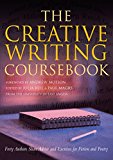
There are some excellent resources out there for creative writers. To get quick ‘starter’ images when your own well is dry I recommend The Writer’s Block by Jason Rekulak. I’m currently working through The Creative Writing Coursebook by Julia Bell and Paul Magrs and finding it very useful.
The next creative writing course session is how to write a short story. But before you move on to that, please feel free to leave a comment or ask a question in the box below.
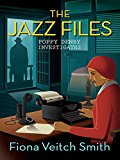
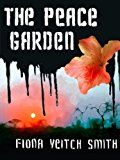
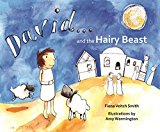
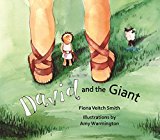
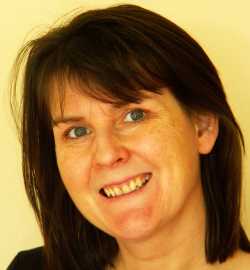 Welcome to The Crafty Writer's free online creative writing course, presented by Fiona Veitch Smith, a freelance journalist, editor, author, playwright, screenwriter and writing teacher. I hope that you'll see a dramatic improvement in the quality of your writing as you work through this course.
Welcome to The Crafty Writer's free online creative writing course, presented by Fiona Veitch Smith, a freelance journalist, editor, author, playwright, screenwriter and writing teacher. I hope that you'll see a dramatic improvement in the quality of your writing as you work through this course.
You’re most welcome Mindy. Your PR background can work for or against you. The positive is that you already have a writing discipline and are used to editing your work. A lot of creatives struggle with that part of writing, but without it you will not have a publishable product. The negative of course is that you are used to writing to formula which can restrict your creativity. Hopefully you will be able to break away from the negative while retaining the positive. Happy writing!
Exercise 3 makes no sense to me; and I do not mean logic. From what you have seen in my exercises 1 and 2, I “write movies”, which is how many people describe my stories. Because poetry is by its nature an audible art, all stories should told in poems; and, when they are, then readers don’t realize that they’re reading. Instead, they see the movie, hear its sounds and feel. I don’t give a damn for the reasoned mind.
That’s fine Al. You obviously already have an understanding of your own creative process. But not everyone does and this exercise tends to help them. Some people who have never considered writing poetry actually find that it’s easier than they thought it would be – or the other way round.
Thanks Fiona,
your wwriting course has been very helpful,
much appreciated.
Bernadette Ryn
You’re most welcome Bernadette.
Pingback: “I think, therefore I create…” « "All that you know…"
I am so happy to be in a creative writing course. It has always been a dream to become a GOOD WRITER. I believe that participating in this course will help me along that journey and to accomplish my goal.
I have really enjoyed doing these exercises so far, I have so many Ideas and sometimes I come to write them down and get a block, by doing these Exercises I have found that my thoughts seem to flow easier on paper.
Dear Nancy, I hope that it does. Happy writing!
Fiona
Dear Cath,
I’m so glad the exercises have been of help. I hope that your writing continues to flow,
Thanks for dropping by,
Fiona
Great course. I am very interested in studying creative writing and this is a dream come true. I just hope you can still find a way to critique some of the exercises even if we dont have the means to pay for the service. Like for example giving like sort of free critique on those that have talent but cannot pay. Anyway, thanks for giving us a chance to express out taughts through writing.
Hi Lyndon.
I’m glad you’re enjoying the course. But you need to understand I’m not a bored, rich writer with loads of time on my hands. Like most people, I have to earn money simply to live. By putting this course up for free I’m already sacrificing potential income – but I think it’s the right thing to do as I believe in helping fellow writers. You can get a lot out of the course without doing the critiques – lots of people do. Each critique takes a good amount of time for me to do – way more than the £5 I charge. It’s not a lot of money, so unfortunately no I can’t do critiques for free. I wonder if people would ask lawyers, accountants, mechanics or plumbers whom they just met over the internet to spend loads of time helping them without expecting to be paid?
I’m currently a student at the Community College of R.I. and I am happy people like you are helping future writers like myself. I look forward to working with you. I am in my last semester and will have more “time” to dedicate to this craft after graduation in May. However, I don’t plan to wait that long to start honing in on this skill. My wife is getting me a Mac Book Pro and I will soon have the ultimate notebook at hand. Although, one is not necessary but it makes things easier. As you already know time is of the essence when it comes to writing.
Well Leo, millions of books were written before computers were ever invented, so don’t wait until then to start writing. But it’s always nice to have a new toy! And of course, your manuscripts will finally have to be written. But don’t forget the old fashioned notebook and pen either Happy writing.
Happy writing.
Thank you so very much for making out time to create this website to help wrters.I have always known I was a talented poet.But I certinly know that my poetry skills really need brushing up.Thanks.I look forward to learing a great deal and I have my paper and biro close by. Thanks.
You’re welcome Nancy. Happy writing!
Pingback: Free Creative Writing Resources | Emerging Internet Technologies for Education
I was born writing and until I graduated from college, it seemed to flow so naturally from my mind to my pen and onto paper. I worked outside of the profession for several years and lost myself, lost my writing abilities too….Thank you for this course. You are helping me find my voice, a voice that was silenced for too long now!
May it never be silenced again!
I’ve already posted once here, but I simply had to thank you again. It’s so great that you put up a free (and so comprehensive too!) course for the benefit of fresh writers. Life got a little busy for me for a year but now that I have more time I really look forward to completing your course.:)
Welcome back Charvi!
Hi Fiona,
Thanks so much for this. Reading is therapeutic for me because I always felt like there was someone out there who thought exactly the same as me and is able to put it in words so much better than I could. I’ve always wanted to do the same which is how I came about finding this course. I’m not really looking to write for a living so it helps that you’re doing this for free…I couldn’t have pursued it as a hobby otherwise;)
Thanks!
Writing as a hobby gives you the soul-enrichment without the stress! Happy writing Jewelle.
Hi..thankyou so much for posting this course for free.. i’m from pakistan and am sorry to say that there are no opportunities to learn creative writing.. I was always a reader and writer, words came to me as easy as breathing ..but somehow, well for a year now i haven’t been able to write a word…i thought my voice was lost forever..ur course has given me hope ..thankyou
You’re most welcome. I hope you enjoy the course.
Fiona
Hi, I have just found this wonderful resource and can’t wait to begin working through your helpful courses. Thank you for taking the time to offer this! blessings,Kathleen